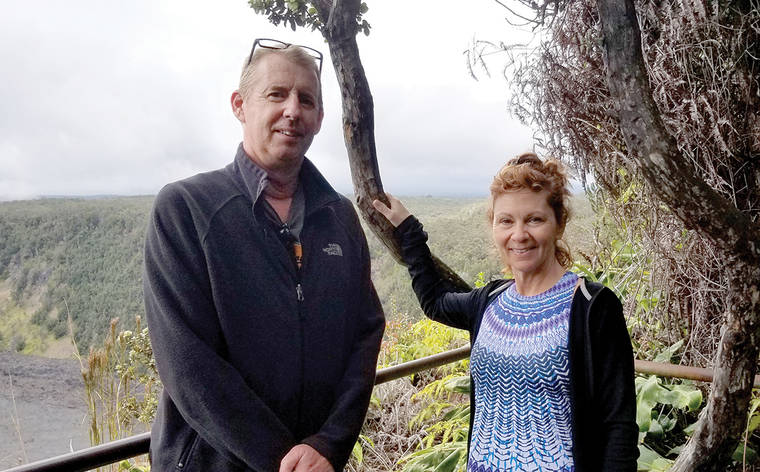As Big Island tourism struggles during the ongoing COVID-19 pandemic, Volcano businesses are hoping to avoid a repeat of their problems during the 2018 Kilauea eruption.
Ira Ono, president of tourism advocacy group Experience Volcano, said local businesses have seen a significant drop in business as the coronavirus outbreak intensifies worldwide, as fewer visitors arrive and businesses make reductions to their hours and service to mitigate the spread of the virus.
“The bed-and-breakfasts have had a lot of cancellations,” Ono said. “Some of them have chosen to close for the month.”
Ono said President Donald Trump’s recent suspension of all travel from Europe has made a substantial dent in visitation to Volcano, while businesses that cater to South Korean visitors have been similarly impacted.
“I’m biting my nails when people start asking me for refunds,” said Shannon Fisher, owner of the Aloha Crater Lodge. “We’re a small bed-and-breakfast; I live on the property. If hardship hits, it’s not just a matter of losing my business, it’s a matter of losing my home.”
Ola Tripp, owner of the Lava Rock Cafe, said his restaurant is down to a skeleton crew after having to lay off most of his staff.
“It’s pretty much as bad as 2018, maybe a little worse,” Tripp said.
But Tripp, like other business owners, is putting on a brave face.
“One good thing is that it’s not gonna last too long,” Tripp said. “Hopefully, if everybody stands together and takes the necessary precautions, it’ll all be over soon.”
Despite the hardships, the Lava Rock Cafe remains open and is providing a takeout-only service, although Tripp said he is considering offering food delivery services to the Volcano area.
Several Volcano businesses have closed temporarily or indefinitely to cope with the downturn, while others, like Ono’s gallery, Volcano Garden Arts, remain open.
Ono’s restaurant even still offers sit-down service, which many Hilo restaurants have cancelled.
“I think a lot of people feel like it’s not going to last too long,” Fisher said. “It’s not going to be like 2018, where we had to deal with that for, what, six months?”
Because of that belief, warranted or not — there is no expert consensus on how long the pandemic might last — Fisher said she has been able to reschedule cancelled reservations to later in the year or early next year, which she was unable to do during the 2018 eruption, when Kilauea’s constant earthquakes seemed set to continue forever.
One thing similar to this downturn and the one in 2018 is that Volcano’s premier attraction, the Hawaii Volcanoes National Park remains open, was forced to close.
While March visitor numbers for Hawaii Volcanoes National Park are still unknown, the park was relatively barren on Wednesday prior to closing today. Even the parking zone outside the recently reopened Thurston Lava Tube, a perennially crowded area, had ample parking space on Wednesday afternoon.
Many of Wednesday’s park visitors were optimistic about the situation. Minnesota visitor Julie Miller said she had only been “mildly inconvenienced” by pandemic-related closures during her visit, while Kyle Thompson, a visitor from New York, said her tour group was booked a year in advance and had never considered cancelling even as the pandemic worsened.
“I’m a nurse, so I know what these viruses do,” Thompson said. “I think we’ll be fine.”
A Michigan couple, Pat Eilers and Tom Gardiner, said they arrived in Hawaii on March 1, before the outbreak was declared a pandemic, and have not been significantly affected, although Gardiner called their lifestyle “half-isolationist.”
“We actually don’t go out much,” Eilers said. “We just rent condos and cook there usually and look for places to hike, so maybe we’re atypical.”
Despite this, experts asked people around the world to curb nonessential travel, and Gov. David Ige urged visitors to stay away from Hawaii for 30 days.
Email Michael Brestovansky at mbrestovansky@hawaiitribune-herald.com.






